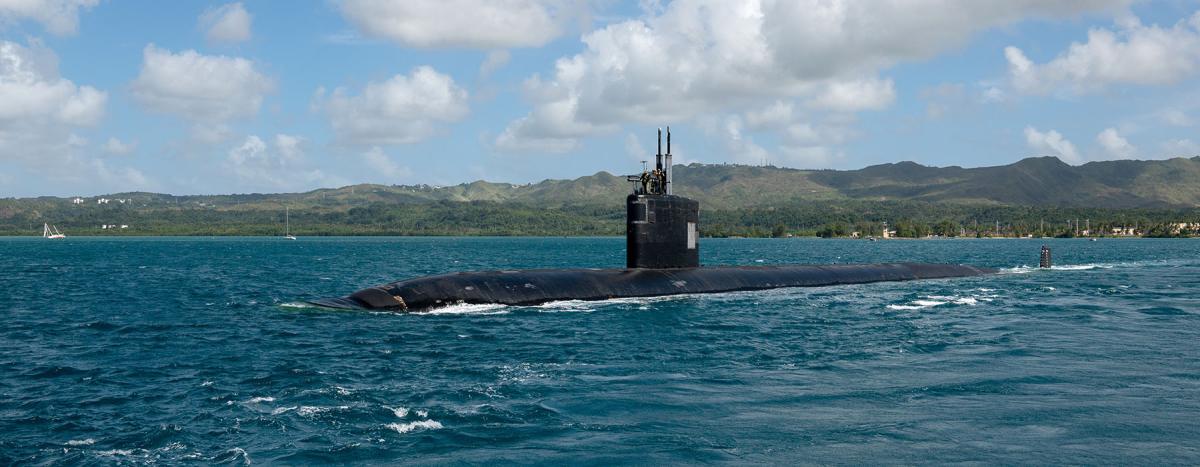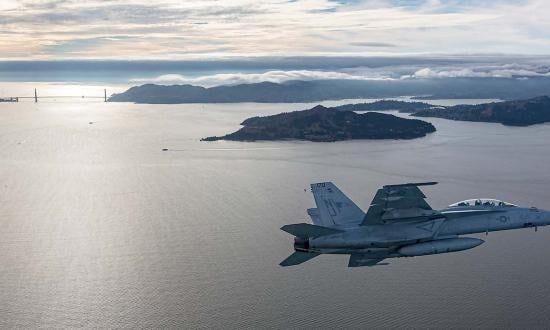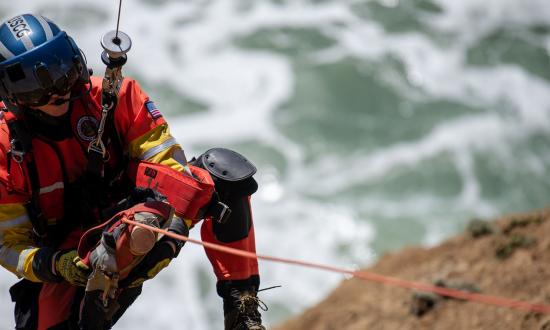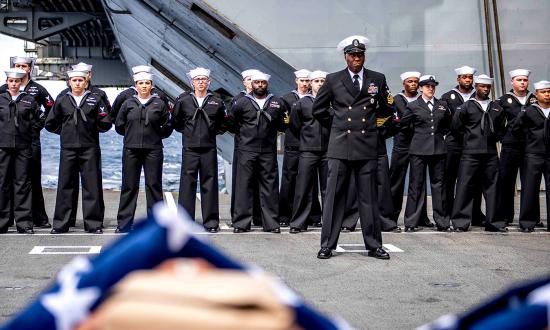When the editorial team evaluates article submissions, there are some we label “old-school Proceedings,” a term of respect and endearment for us. By “old-school,” we mean an article that goes deep on a specific tactical or technical issue—often related to seamanship, navigation, or engineering—in the way Proceedings articles from 75 to 100 years ago often did. October is our annual focus on submarines and antisubmarine warfare (ASW), and this month’s old-school article is Lieutenant Matthew Homeier’s “Navigate by the Stars—From Beneath the Waves.” Even if you never served on a submarine or practiced celestial navigation, you will appreciate the ingenuity behind it.
Other great submarine and ASW content in this issue includes: “Use Emerging Technology for ASW;” “Improve Undersea Domain Command and Control;” “Use Bioluminescence to Own the ASW Night;” and “Under the Waves: Presidents’ Submarine Voyages.” That last one sums up nicely the personal connections between eight U.S. Presidents and the “Silent Service.” Remember the list and you could win a few trivia bets.
In the category of “I didn’t see that one coming, but I like it!” is an article about how the Marine Corps might emulate the World War II submarine force. In “Marines Need a New Mental Model for Sea Control,” Lieutenant Colonel Thaddeus Drake writes that the simple guiding principles of wartime submarine skippers would serve today’s littoral combat regiments well: Operate alone or in small groups; understand higher headquarters’ desired end state; don’t be found; when you find targets that meet your criteria, engage; and continue until you run out of fuel or ammo.
The winning essay from this year’s Naval Intelligence Professionals Essay Contest is “A New Typology for Naval Intelligence Talent Development” by Lieutenant Commander Shane Halton and Lieutenant Kyle Cregge, U.S. Navy. Intelligence can be a challenging topic for an unclassified forum, but Halton and Cregge have deftly categorized three types of people within naval intelligence and offered ways to develop them professionally—for the good of the service and the individuals. It is a creative look at the topic.
Leadership Forum is one of my favorite monthly departments, in part because it is usually authored by a junior officer or enlisted leader. This month, Coast Guard Lieutenant James Martin provides sage advice to those selected for early command. One of the things junior commanders must master is in the title: “Learn to Say No.” The other three are: Communicate by all means; build up your accounts; and have fun. The topic of early command always plays well with you, our readers, and this one won’t disappoint.
Watching the U.S. withdrawal from Afghanistan in August and trying to make sense of the U.S. place in the post-9/11 world, many are struggling to articulate what went wrong and how to avoid the same mistakes in the future. To that end, retired Marine Corps Colonel Tom Greenwood’s “The Elusive Quest for Victory in War” is a thought piece for military leaders at all levels. World War II–style victory would be great, but “the mission of the U.S. military might be better described as fighting and succeeding in the nation’s wars.” Indeed.
Next month is our Marine Corps–themed issue. Spoiler alert: Commandant General David Berger writes about stand-in forces! Don’t miss it.








